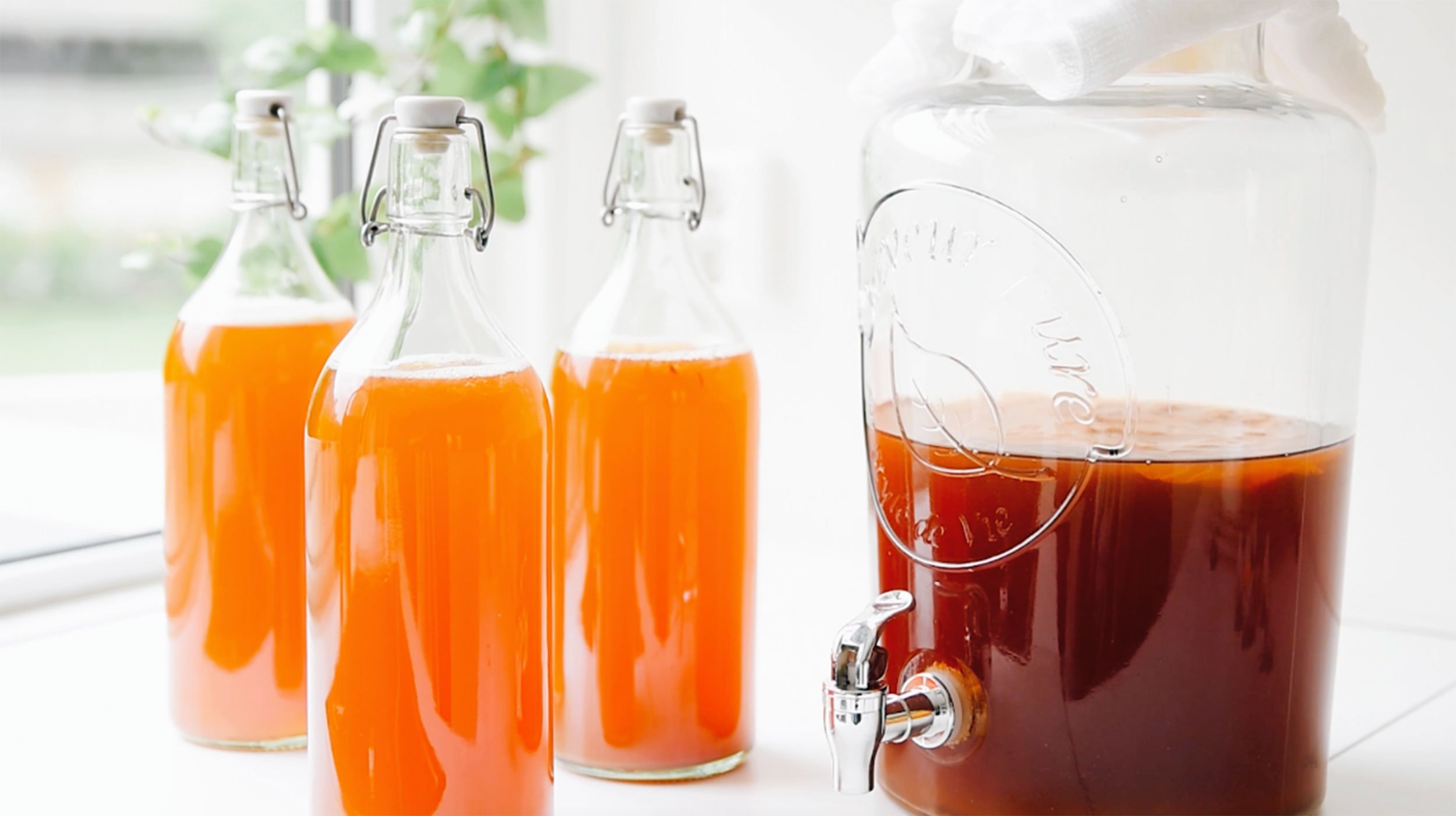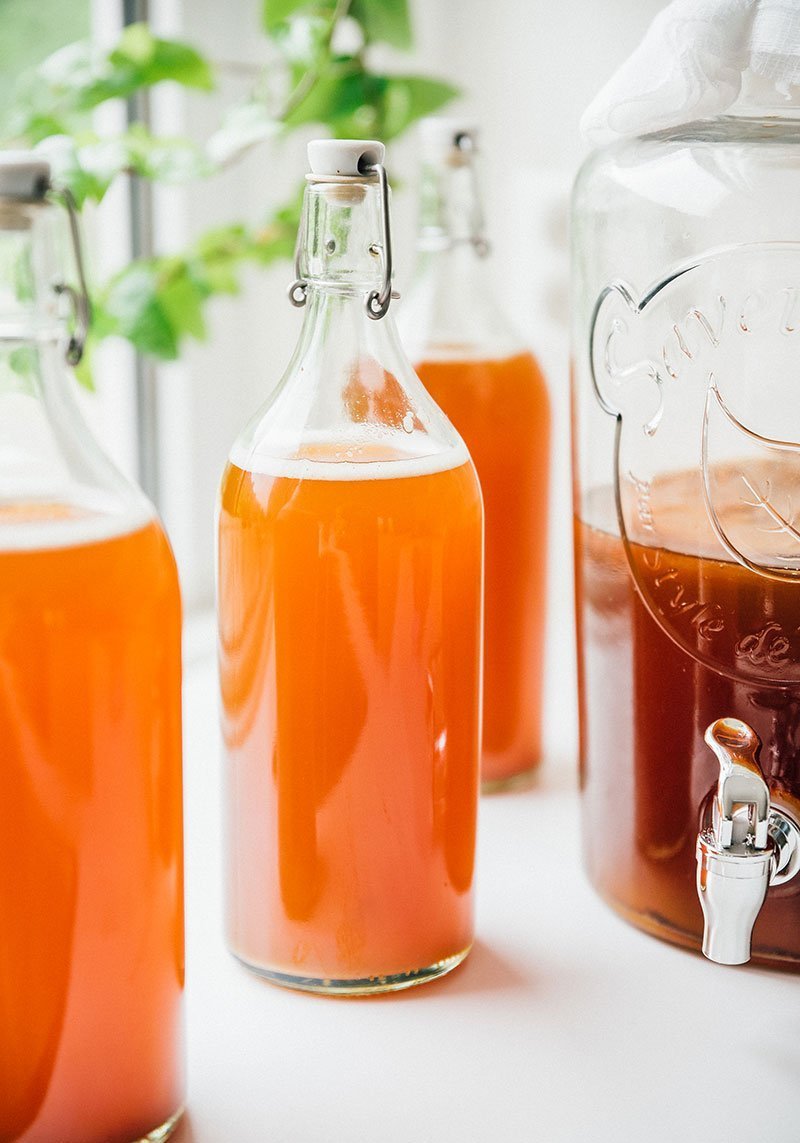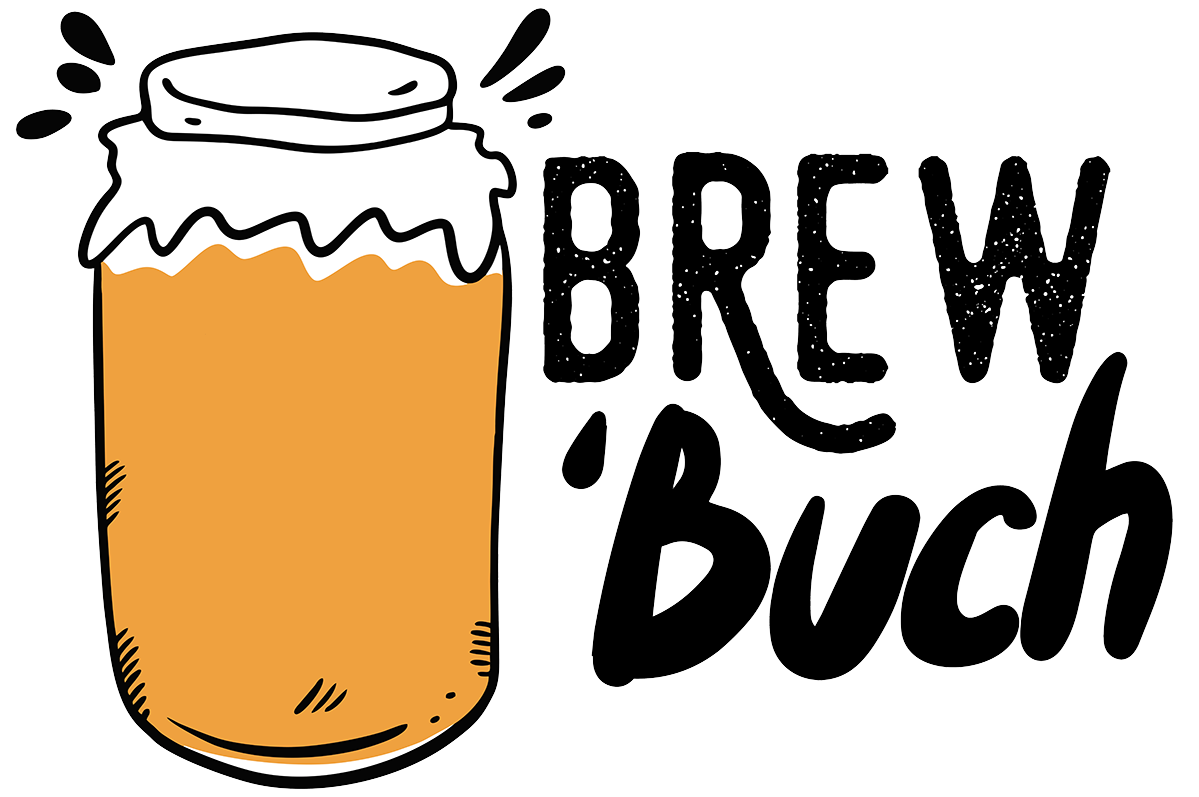The main feature of the ketogenic (or keto) diet is the consumption of less carbs and sugars. Which begs the question, is kombucha keto friendly?

They’re the two biggest trends of the year, keto and kombucha – but can the two coincide? With a diet as restrictive as keto, and a drink as weird as kombucha, it’s understandable that the question comes up!
The short answer: kombucha is keto…sometimes. Breaking it down in detail below!

What is keto?
For the uninitiated, the ketogenic diet is a low carb, high fat diet where carbohydrate and sugar intake is dramatically cut down. This reduction in carbs puts your body in a metabolic state of ketosis, meaning your body burns fat more efficiently, resulting in weight loss.
Most people on a keto diet aim to keep their daily carb intake below 20g (for reference, 1 12-oz can of Coca Cola has 39g of carbs).
What is kombucha?
Kombucha is a sweetened tea that’s been fermented to create a slightly acidic, carbonated beverage. A SCOBY (Symbiotic Culture of Bacteria and Yeast) is added to black tea and sugar, then left to ferment for a few days or weeks. In this time, the bacteria and yeast in the SCOBY “eat” the sugars in the tea, producing flavor, acidity, and carbonation.
So although sugar is needed to make kombucha, it’s not all still present in the kombucha when it comes time to drink it!

Is kombucha keto?
Whether or not kombucha is keto depends on how much sugar the bacteria and yeast have “eaten” in the kombucha. When they have eaten more (such as when it is warmer or the fermentation goes for longer), the tea becomes less sweet and more tart (because the sugar is gone).
Most store bought brands of kombucha balance the sweet and tartness of their kombucha to a level that most consumers will like. As a result, most store bought brands contain anywhere from 3 to 8 grams of carbohydrates (sugar) per 8 ounces.
When you brew kombucha at home, however, you can have more control over the carbohydrate count of your brew!
Make keto-friendly kombucha in the 1st fermentation
To make your home brewed kombucha keto-friendly, you’ll essentially just need to allow the bacteria and yeasts to eat more of the sugar!
Prepare your kombucha first fermentation as you usually would (including all the sugar noted in the recipe). But rather than fermenting the kombucha for 7 to 10 days, let it ferment for longer – anywhere from 15 to 30 days. After the 10th day, begin tasting it every few days until it reaches a level you like (note, it will be more tart).
While taste is a good indicator of sweetness levels (and thus sugar content), you can also measure the sugar content with this Brix refractometer. While not exact, you can generally calculate sugar content of kombucha as follows:
1 Brix = 1 gram of sugar / 100 mL of liquid
So if your refractometer reads 3, then there are roughly 3 grams of sugar per 100 mL (meaning 7.2 grams sugar per 8 oz).
“do you know how to convert grams of sugar brix from my refractometeR to carbs?”
…And in the second fermentation
For the second fermentation (where you flavor and carbonate your kombucha), consider low carb ingredients that pack in flavor, like ginger, lemon, or mint. Once carbonated and ready to drink, optionally sweeten the brew with stevia or monk fruit.
Can you use artificial sweeteners to make kombucha?
Artificial sweeteners should not be used in the first fermentation. This is because the sugar is what feeds the bacteria and yeast, making the whole fermentation possible! (Grab our guide to the best sweeteners for kombucha here.)
You can use artificial sweeteners in the second fermentation, along with low sugar fruits like berries.


Kind of. But I think I meant to ask how to convert sugar brix from my refractometer to carbs…? I know how many brix in my batch, but don’t know how that covers to carbs…
Ah gotcha. Each degree brix is equal to 1% sugar concentration (or 1 gram of sugar in 100 grams of solution). So a reading of 4 means there are 4 grams of sugar in 100 mL.
Thanks so much for all your helpful info, especially this article. So do you know how to convert grams of sugar to carbs? I can’t seem to find that info. Because i look at carbs in an item, not sugar so I’m sort of uncertain here… thanks much.
They’re basically interchangeable. 4 grams of sugar is 4 grams of carbs. Is that what you mean?
I’m not sure if I would call kombucha keto-friendly, but it definitely has a lower carb count than most other drinks.
Absolutely Fantastic Article- I am a Type 1 Diabetic and THIS ARTICLE WAS A HUGE HELP!
I’VE BEEN HOME BREWING OUR FAMILY’S HOME KOMBUCHA FOR AT LEAST 2 YEARS AND IT HAS NOT AFFECTED MY BLOOD SUGAR LEVELS AT ALL – HOWEVER, I give 2 and 1/2 weeks between brews so the Scoby Has plenty of time to ” eat” up the sugar….
Again!! I LOVE Your Articles!!
T. REED
A little confused about the refractometer! Is it or isn’t it a way to precisely measure the amount of sugar? It’s strange to think there’s a device to measure the sugar levels, but that it isn’t dependable. And, you say it’s ‘hit or miss’. Why is it hit or miss with buch?
Because kombucha is a fermentation it can throw off the sugar counts a bit, and those made for beer etc don’t necessarily work on kombucha. Sorry I don’t have a better answer for this one, just not a lot of good gear for measuring sugar in buch!
Hi Sara!
First off thank you for such an informative site. (And I like the layout.)
I gave up kombucha because of the protocol I had to follow for an illness. I have since switched and can drink kombucha again. I actually jumped up and down.
As part of the new protocol, I am following a keto diet. And was probably drinking too much to go into ketosis. After reading this great article I bought a refractometer and now I am uncertain how many carbs I should calculate. I have a reading of 6. Is that 6 grams of sugar for every 100ml? Oh dear!!
Hi CJ! Yay for being able to drink kombucha again! Refractometers can be a little hit-or-miss when it comes to kombucha unfortunately. A Brix reading of 6 would indicate 6 grams per 100 ml, but that should probably be taken with a grain of salt. You may have better luck just running the fermentation for much longer and tasting – when it tastes pretty sour you’ll know most of the sugar has been fermented out of it.
If you have been on keto for a while, even small amounts of sugar will taste overly sweet. It should be fine to bottle after a couple of weeks but you can extend the 2nd fermentation to a week or more to cut down the sweet taste even more.
I started a new batch 53 days ago-more than 7 1/2 weeks ago-and the pH is at 2.5, but it is still sweet. (But not as sweet as at the beginning.) There is a thickened scobi on it, and I don’t think I see anything wrong with it. But I have some questions:
1) Is it safe to drink after this long or with such a low pH?
2) Why is it still sweet after this long?
It should still be safe to drink, but I’m not sure why it would be so sweet still. Did you use plain white sugar?
At 4 weeks I was getting a brix reading of 5. Now I’m at 6 weeks and it’s just barely under 5. Its it not going to consume anymore sugar? Dont think I can use it for keto if I cant get it down a lot lower 🙁
Have you tried tasting it to see how sweet it is? If it’s still sweet, you could maybe add a bit more starter to keep the reaction going?
Refractometers are calibrated for sugar dissolved in plain water. Because of all the other ingredients in kombucha, it will never read zero.
You can still use it for guidance, though it will take some intuition to interpret, which you will develop over time. One way to judge is when the number stops going down over several days, the sugar is used up — assuming the bacteria and yeast are not dead, and the product doesn’t have any sweetness to it.
You still can’t count it as exactly zero carbs, no matter what you do, but the amount will be a lot lower than the original sweet tea.
So we waited another 3 weeks tasting weekly and now it’s perfect!! Our new batch sat for 4 weeks and it’s perfect again!
I’m on keto – so testing my kombucha after day 14 and still sweet! I’ll wait another week to test flavor. I did invest in the sugar tester just waiting for it from amazon. Jared wants to know if you have a recipe with rose petals in it!! It’s Valentine’s Day gift!!!
It’s probably just going a bit slowly because it’s winter – may take a while! And I DO have a rose recipe that’s brewing right now! Haven’t had the chance to taste test yet but it’s looking promising 😀
When I lived at home and was able to make my own kombucha, I used rose petals. I got them from a neighbour who did not use any sprays on his roses, I then dehydrated the petals, and was able to make many batches from my collection of petals. During the winter I had 2 large jars of petals to use. I loved the flavour.
I would put the petals in a tea infuser and add the tea and then add the sugar when the tea bags and infuser was taken out.
hope this helps.